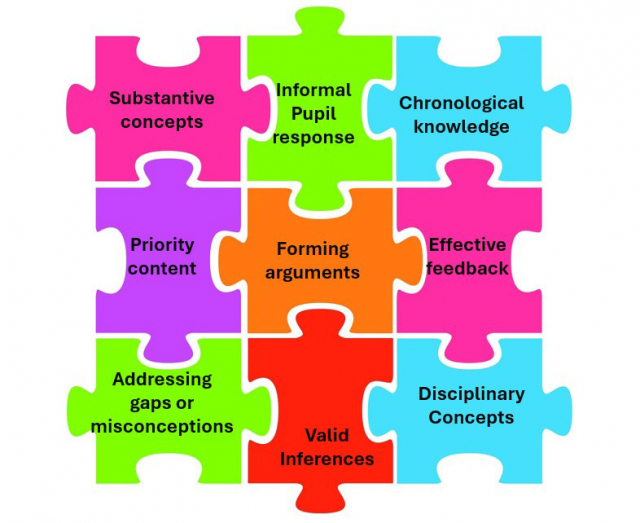Course: Assessment and progression in primary history
HA CPD course for primary history subject leaders and senior leaders

Spring term: 30 January 2026, 9.30am–3.30pm (online)
What does the course cover?
This practical course will help primary teachers to understand the purpose of assessment in history and consider current best practice. We will explore ways of continuing to improve the quality of teaching and learning in history through effective assessment strategies. We will go through practical ideas and resources to enliven teaching and learning in history and provide opportunities for assessment. This course will provide guidance and support to help develop the accuracy of teacher judgements. During the course, we will look at examples of writing and outcomes from different schools and consider how these outcomes demonstrate progress and attainment in history.
-
Who is the course for?
The course is aimed at history subject leaders and senior leaders in primary schools. The day will cover assessment strategies for pupils at EYFS, Key Stage 1 and 2.
-
What are the learning outcomes?
The course will enable you to:
- • understand the purpose of assessment in history
- • consider current best practice
- • explore ways of continuing to improve the quality of teaching and learning in history through effective assessment strategies
- • explore practical ideas and resources to enliven teaching and learning in history and provide opportunities for assessment
- • provide guidance and support to help develop the accuracy of teacher judgements
-
What is the programme for the day?
The course will be split into four sessions with plenty of opportunity for discussion.
Session 1: What is (and what is not) the purpose of assessment in primary history?
To start the day, teachers will discuss the characteristics that pupils who have made great progress in history are likely to show. We will examine key research from Ofsted relating to assessment and refine our understanding around the purpose of assessment in history.
Session 2: Clarity and precision: What do pupils need to know and therefore be assessed on?
This session will consider the importance of clarity and precision within the assessment of primary history. In primary history, there needs to be clear guidance about what pupils need to know and therefore be assessed on. Assessment should be focussed on important content and concepts. It should provide useful information about gaps and misconceptions that can be used to inform teaching and curriculum planning.
Lunch
Session 3: Formative and summative assessment (including substantive and disciplinary assessment)
In this session, we will discuss effective formative assessment. Formative assessment must allow teachers to draw valid inferences about pupils’ knowledge that they can act on and should help teachers to address specific gaps or misconceptions that the assessments have identified. We will also discuss the role of summative assessment in helping teachers understand pupil performance at the end of a period of teaching. Pupils’ performance in summative assessment will be the result of complex layers of knowledge developed cumulatively across units and, ultimately, across years of study.
Session 4: Practical examples: How to position assessment within a sequence of learning in primary history
In the final session of the day, teachers will have the chance to examine example sequences of learning that practically demonstrate the application of the learning about assessment from the earlier sessions.
-
Who is leading the course?
The course is led by Steven Kenyon. Steven is a member of the Historical Association’s primary committee, having worked as a primary school teacher and then Deputy Head Teacher between 2004 and 2018. He joined Lancashire Professional Development Service in April 2018 as a Teaching and Learning Consultant for Primary History and English. He works closely with Lancashire Archives to promote and develop local history work in primary schools. This year he is a judge for the Historical Association's Young Quills Awards.
-
What does it cost?
The course is charged at £220 for HA members and £295 for non-members (inclusive of VAT). Please note that Cademy will charge an additional fee if payment is made by card rather than invoice.
To access the member price please provide your membership number when prompted. You must have a valid membership at the time of booking and attending the course.
Did you know? It is cheaper to become an HA member and access your tickets at the membership rate, plus a range of other benefits all year round. Find out more about Primary membership.
-
How do I take part?
The course takes place online over Zoom. While we strongly recommend participating live, if you are unable to attend for any reason a recording link will be made available. This will be emailed to all registered participants to access for a limited time period.
Booking will become available at the end of the autumn term. Registration is via Cademy which opens in a new window. Please read the HA CPD terms and conditions before registering.
For any enquiries, please contact events@history.org.uk.

